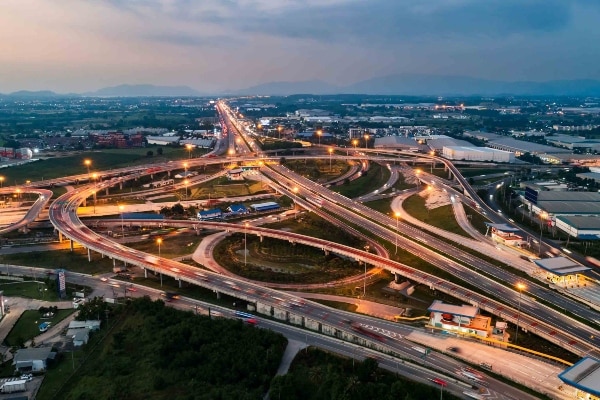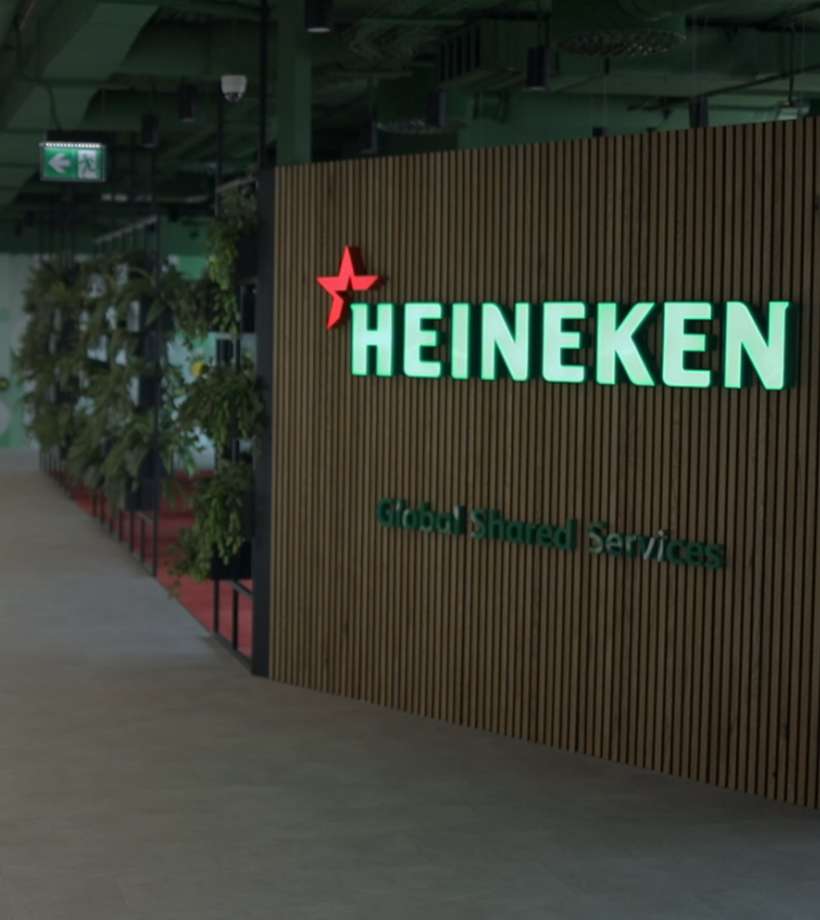-
Featured services
2026 Global AI Report: A Playbook for AI Leaders
Why AI strategy is your business strategy: The acceleration toward an AI-native state. Explore executive insights from AI leaders.
Access the playbook -
Services
Alle Services und Produkte anzeigenNutzen Sie unsere Fähigkeiten, um die Transformation Ihres Unternehmens zu beschleunigen.
-
Services
Network-Services
Beliebte Produkte
-
Services
Cloud
Beliebte Produkte
-
Services
Consulting
-
Edge as a Service
-
Services
Data und Artificial Intelligence
- KI und intelligente Lösungen
- Daten-/KI-Strategie und -Programm
- Data Engineering und Plattformen
- Daten-Governance und -management
- Datenvisualisierung und Entscheidungsfindung
- $name
- GenAI Platforms
- GenAI Industry Services
- GenAI Infrastructure Services
- GenAI Value Transformation
- Data und Artificial Intelligence
-
-
Services
Global Data Centers
-
Beliebte Produkte
-
Services
Application Services
-
-
Services
Digital Workplace
-
Services
Business Process Services
-
Services
Generative AI
-
Services
Cybersecurity
-
Services
Enterprise Application Platforms
![]()
IDC MarketScape: Anbieterbewertung für Rechenzentrumsservices weltweit 2023
Wir glauben, dass Marktführer zu sein eine weitere Bestätigung unseres umfassenden Angebotes im Bereich Rechenzentren ist.
Holen Sie sich den IDC MarketScape -
-
Erkenntnisse
Einblicke und RessourcenErfahren Sie, wie die Technologie Unternehmen, die Industrie und die Gesellschaft prägt.
-
Erkenntnisse
Ausgewählte Einblicke
-
Die Zukunft des Networking
-
Using the cloud to cut costs needs the right approach
When organizations focus on transformation, a move to the cloud can deliver cost savings – but they often need expert advice to help them along their journey
-
So funktioniert Zero-Trust-Sicherheit für Ihr Unternehmen
Sorgen Sie dafür, dass Zero-Trust-Sicherheit für Ihr Unternehmen in hybriden Arbeitsumgebungen funktioniert.
-
-
Erkenntnisse
![]()
Copilot für Microsoft 365
Jeder kann mit einem leistungsstarken KI-Tool für die tägliche Arbeit intelligenter arbeiten.
Copilot noch heute entdecken -
-
Erfahren Sie, wie wir Ihre Geschäftstransformation beschleunigen können
-
Über uns
Neueste Kundenberichte
-
Liantis
Im Laufe der Zeit hatte Liantis, ein etabliertes HR-Unternehmen in Belgien, Dateninseln und isolierte Lösungen als Teil seines Legacysystems aufgebaut.
-
Randstad
We ensured that Randstad’s migration to Genesys Cloud CX had no impact on availability, ensuring an exceptional user experience for clients and talent.
-
-
![Heineken Landing Page]()
NTT DATA und HEINEKEN
HEINEKEN revolutioniert die Mitarbeitererfahrung und die Zusammenarbeit mit einem hybriden Arbeitsplatzmodell.
Lesen Sie die Geschichte von HEINEKEN -
- Karriere
Topics in this article
Sustainability is now a key consideration in nearly every aspect of running a business. The overall goal is to save our world for future generations. Understanding areas of opportunity better today also puts organizations in good stead now and in the future.
Committing to environmental and social responsibility can do wonders for brand reputation and differentiate an organization from its competitors, creating a competitive advantage – for example, by attracting talented employees. It can even spur innovation in the quest for more environmentally friendly and socially responsible products and services.
Sustainability goals also help organizations address risks associated with environmental and social issues, such as regulatory penalties or supply-chain disruptions, and lead to cost savings in the long run through waste reduction and the efficient use of resources.
- ALSO READ → Why risk and sustainability go hand in hand
IT at the heart of sustainability
According to a comprehensive new study on sustainability compiled for NTT by Omdia and NetApp, CIOs and IT departments play a critical part in sustainability initiatives in 58% of surveyed organizations, with 32% saying the function resides within IT and 26% having representation from IT in cross-functional teams.
However, organizations may struggle to balance the pursuit of their sustainability goals with other pressing business issues, and many still focus on relatively easier initial goals, including reducing their energy consumption and using more green energy.
With the focus on sustainability already entrenched in the IT function, it’s not surprising that 63% of respondents agree that IT, data centers and cloud infrastructure are key pillars of their sustainability agendas – pointing to a strong link between data storage and sustainability.
Research also shows that circularity – minimizing waste and extending the lifespan of products and materials to support efficient resource usage – is becoming more prominent in the technology and data storage industry. Vendors and customers are reselling or reusing devices and reducing electronic waste by extending the lifespan of their hardware.
Huge volumes of dead data
More than 70% of respondents reported that, on average, up to 60% of their data was unused. This represents a significant opportunity for data removal – and, with that, an opportunity to reduce the power consumption associated with storing this data.
As more organizations are starting to realize how their data storage affects the environment, nearly 7 in 10 respondents agree that better data management, including data storage, is important to their organization. However, only about a third of organizations say they have the resources in place to measure and report the implications of their data storage and expansion.
Such reporting may not yet be required in terms of compliance in many regions but is likely to form part of environmental regulation soon enough. In the meantime, organizations that lack the skills to assess their data storage and usage can turn to managed service providers like NTT for help.
Data storage as part of your sustainability strategy
According to the research, most organizations don’t yet connect data storage to their sustainability strategies. They focus more on buying energy-efficient equipment than on managing their data estate to reduce their storage needs – but rethinking their workspaces, energy sources and hardware will only get them so far along their sustainability journey.
Once organizations start assessing their data storage, the most common next steps, according to our research, are to move their data to cloud-based servers, consolidate their data centers and reduce the size of their server rooms. Again, organizations are likely to benefit from expert third-party assistance to do this as efficiently as possible within their broader cloud strategy and without any business interruptions.
It is critical to note that any new data storage plans or policies must be aligned with the organization’s information, technology, security and sustainability strategies, and a strategic review must be conducted before any changes are implemented.
Yet, such a review may already be a daunting task. More than half of the organizations in our research believe that trying to understand how to make their technology more sustainable is a prominent challenge in advancing their sustainability initiatives.
And, while nearly 9 in 10 organizations have a formal internal policy in place to incentivize the adoption of sustainable IT practices and 8 in 10 incentivize their vendors and suppliers to adopt sustainable IT practices, half of the respondents say their suppliers do not share their sustainability goals. So, there is more to be done to put theory into practice.
Keeping an eye on strategy
At NTT, we are very much aware of the challenges and opportunities in the realm of sustainability. We have our own ambitious sustainability goals – organized under the themes Connected Planet, Connected Economy and Connected Communities – and we focus on sustainability across our operations and our value chain, globally.
For example, we plan, build and operate our data centers in a particularly energy-efficient manner as part of our goal to reduce net emissions from our plant operations to zero by 2030, and along our entire value chain by 2040.
With this commitment and a comprehensive range of service offers that offer a clear sustainability value proposition (including data waste assessment), we have the right knowledge, experience and expertise to help our clients reduce their carbon footprint and make tangible progress toward achieving their sustainability goals.




